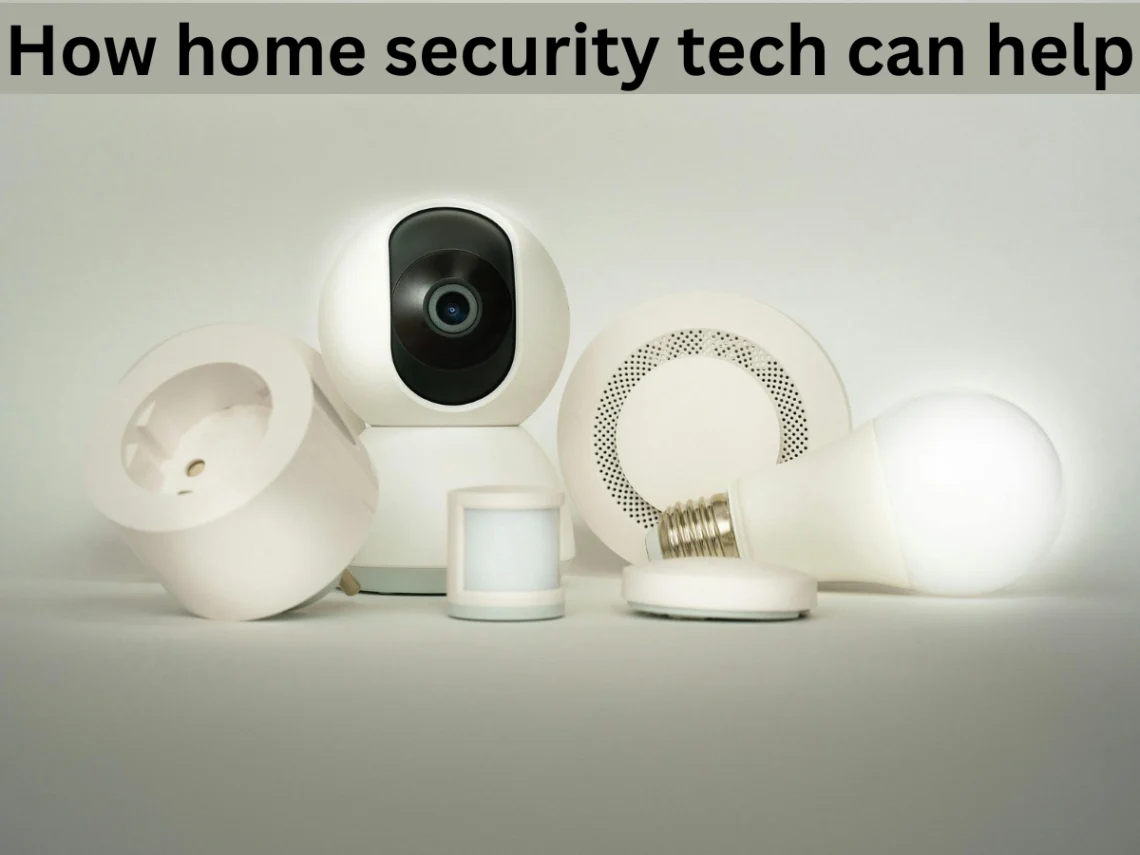
Emergency preparedness: How home security tech can help?
Table of Contents
ToggleEmergency Preparedness: How Home Security Tech Can Help
In an unpredictable world, emergency preparedness is no longer optional—it’s a necessity. Whether it’s natural disasters, break-ins, fires, or medical emergencies, having a robust emergency plan in place can make all the difference.
With advancements in home security technology, homeowners now have access to cutting-edge solutions that enhance safety and preparedness. From smart surveillance systems to AI-powered emergency alerts, technology plays a vital role in keeping your home and family secure.
In this article, we’ll explore how home security technology can bolster emergency preparedness, the best devices to invest in, and essential tips for optimizing their use.
The Importance of Emergency Preparedness
Emergency preparedness involves anticipating potential threats, having a clear response plan, and utilizing technology to mitigate risks. Here’s why it matters:
- Minimizes property damage: Proactive security measures can prevent break-ins, fires, and other disasters.
- Ensures family safety: Advanced tech solutions provide real-time alerts and quick response options.
- Reduces response time: Automated emergency notifications help in faster intervention by authorities.
- Provides peace of mind: Knowing your home is secured gives you confidence, even when you’re away.
What Sets Security Tech Apart?
Security tech is not just about deterrence—it is engineered to sense and react. Unlike basic security measures, it targets specific risks. Smart smoke detectors, motion sensors, and flood alarms actively detect dangers before they escalate.
For instance, HomeKit smoke detectors provide real-time fire detection and alert homeowners instantly via smartphone apps. Likewise, Owl Wired security cameras offer AI-powered surveillance, ensuring enhanced protection against intruders.
Statistics That Prove the Power of Smart Security Tech:
- 40% faster response time: Homes with smart detectors reduce fire response delays.
- 60% reduction in burglaries: Motion sensor-linked security lights deter intruders.
- 70% cost savings: Flood sensors with automatic shut-off reduce water damage expenses.
These numbers highlight the importance of adopting smart security systems for comprehensive emergency preparedness.
How Home Security Tech Enhances Emergency Preparedness?
1. Smart Surveillance Cameras
Benefits:
- Offer 24/7 monitoring of your property.
- Enable remote access to live footage via mobile apps.
- Detect suspicious activity with AI-powered motion sensors.
- Deter criminals with visible security features.
Best Options:
- Ring Video Doorbell – Allows homeowners to monitor front-door activity.
- Arlo Pro 4 – Features night vision, AI detection, and high-resolution recording.
- Google Nest Cam – Provides real-time alerts and integrates with smart home systems.
2. Smart Locks and Access Control
Benefits:
- Eliminates the need for physical keys, reducing unauthorized access.
- Allows remote locking/unlocking via smartphone apps.
- Provides real-time entry logs to track who accesses your home.
Best Options:
- August Smart Lock Pro – Integrates with Alexa and Google Assistant for seamless access control.
- Yale Assure Lock – Offers a keyless entry system with PIN codes and smartphone control.
- Schlage Encode – Wi-Fi-enabled deadbolt with built-in alarm system.
3. Alarm Systems and Intrusion Detectors
Benefits:
- Instantly alert homeowners and authorities in case of break-ins.
- Integrate with cameras and sensors for full-home protection.
- Feature loud sirens to deter intruders.
Best Options:
- SimpliSafe Home Security System – Customizable security setup with emergency dispatch services.
- ADT Security System – Professional monitoring services with police notification.
- Vivint Smart Home – AI-powered security with environmental monitoring.
4. Fire and Carbon Monoxide Detectors
Benefits:
- Detect smoke and dangerous gas leaks before they become life-threatening.
- Send instant mobile alerts even when homeowners are away.
- Integrate with smart home assistants for automation.
Best Options:
- Nest Protect – Dual-sensor smoke and CO detector with smart alerts.
- First Alert Onelink – Sends notifications to smartphones in case of emergency.
- Kidde Smoke & CO Detector – Budget-friendly solution with voice alerts.
5. Flood and Leak Detection Systems
Benefits:
- Prevents extensive water damage by detecting leaks early.
- Sends real-time alerts to mobile devices.
- Can integrate with smart home automation for automatic shut-off.
Best Options:
- Flo by Moen – Monitors water usage and detects leaks remotely.
- D-Link Wi-Fi Water Sensor – Affordable option with mobile notifications.
- Samsung SmartThings Water Leak Sensor – Works seamlessly with smart home systems.
6. Smart Emergency Lighting
Benefits:
- Provides illumination during power outages.
- Offers motion-activated lighting for enhanced security.
- Can be controlled remotely via smart assistants.
Best Options:
- Philips Hue Smart Bulbs – Offer customizable emergency lighting.
- LIFX LED Smart Bulbs – Energy-efficient and compatible with voice assistants.
- Ring Pathway Lights – Automatically light up outdoor spaces when motion is detected.
7. Panic Buttons and Wearable Safety Devices
Benefits:
- Provide immediate access to emergency services with a single press.
- Ideal for elderly family members or individuals with medical conditions.
- Can be connected to smart home security systems for rapid response.
Best Options:
- Life Alert – Designed for seniors needing emergency assistance.
- ADT Panic Button – Wearable device that connects to security services.
- AngelSense GPS Tracker – Ensures real-time location tracking for vulnerable individuals.
How to Optimize Your Home Security Tech for Emergencies?
1. Regular System Maintenance
- Test all security devices monthly to ensure they’re functioning correctly.
- Update software and firmware for security systems to stay ahead of vulnerabilities.
- Replace batteries in wireless security devices periodically.
2. Integrate with Smart Home Assistants
- Connect security devices with Google Assistant, Amazon Alexa, or Apple HomeKit for seamless automation.
- Set voice-activated emergency commands for hands-free control.
3. Create an Emergency Response Plan
- Establish clear communication channels with family members.
- Define safe evacuation routes for different types of emergencies.
- Train everyone on how to use security technology effectively.
4. Enable Real-Time Alerts and Notifications
- Customize alerts for different security events.
- Share access to security systems with trusted family members.
- Set up geofencing to activate security measures when leaving home.
5. Invest in Professional Monitoring Services
- Consider 24/7 monitoring services from ADT, Vivint, or SimpliSafe for immediate emergency response.
- Some insurance companies offer discounts for professionally monitored security systems.
Future Trends in Home Security Tech for Emergency Preparedness
1. AI-Powered Surveillance and Facial Recognition
- Enhances security with real-time threat detection.
- Identifies familiar faces to reduce false alarms.
2. IoT Integration for Predictive Analytics
- Uses machine learning to predict and prevent security threats.
- Automates home security based on behavioral patterns.
3. Drones for Home Security
- Provides aerial monitoring of properties.
- Can be programmed to respond to security breaches.
4. Blockchain for Secure Access Control
- Enhances security by providing encrypted authentication.
- Eliminates risks associated with password breaches.
Conclusion
Home security technology has transformed emergency preparedness, making it easier to prevent, detect, and respond to potential threats. Whether you’re investing in smart cameras, advanced alarm systems, or AI-driven security solutions, integrating these technologies into your emergency plan enhances your home’s safety and provides invaluable peace of mind.
By staying informed about the latest security innovations and optimizing your home security setup, you can safeguard your loved ones and property against unexpected emergencies. Now is the time to embrace smart home security for a safer future.
FAQs
Can smart home security systems prevent break-ins?
While no system can guarantee 100% prevention, smart home security systems, including surveillance cameras, smart locks, and alarm systems, significantly reduce the chances of break-ins by deterring criminals and enabling rapid response.
Are professionally monitored security systems better than self-monitored ones?
Professionally monitored systems provide 24/7 emergency response, ensuring that authorities are alerted immediately. Self-monitored systems rely on the homeowner to respond to alerts, which can be effective but may delay action if the homeowner is unavailable.
How can I integrate my home security devices for better emergency preparedness?
You can integrate your devices using platforms like Apple HomeKit, Google Assistant, or Amazon Alexa. This allows seamless automation, such as turning on emergency lights when smoke is detected or automatically locking doors during an intrusion.
You May Also Like
Order Tracking Tips for Small Business: Complete Guide
14 January 2025

